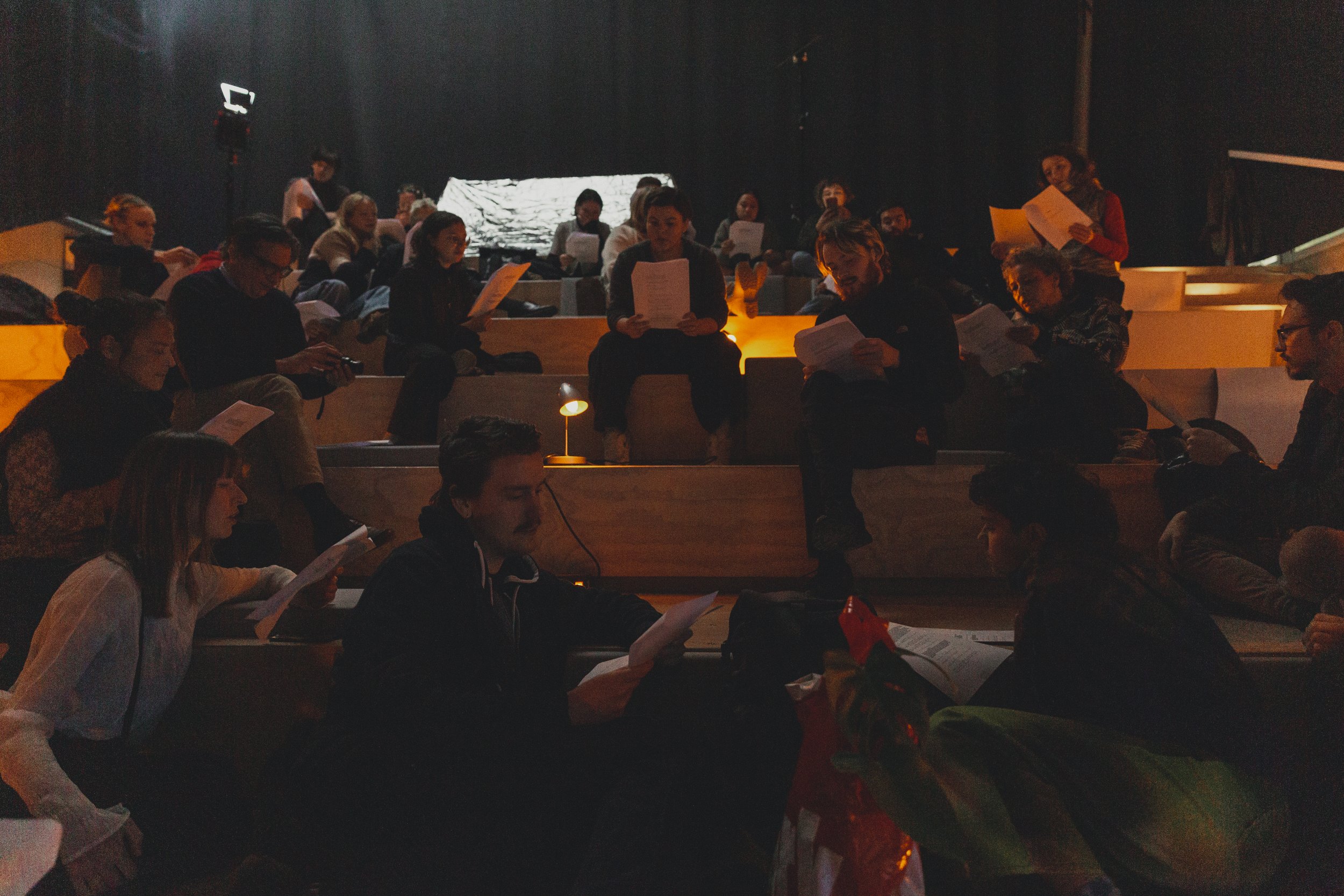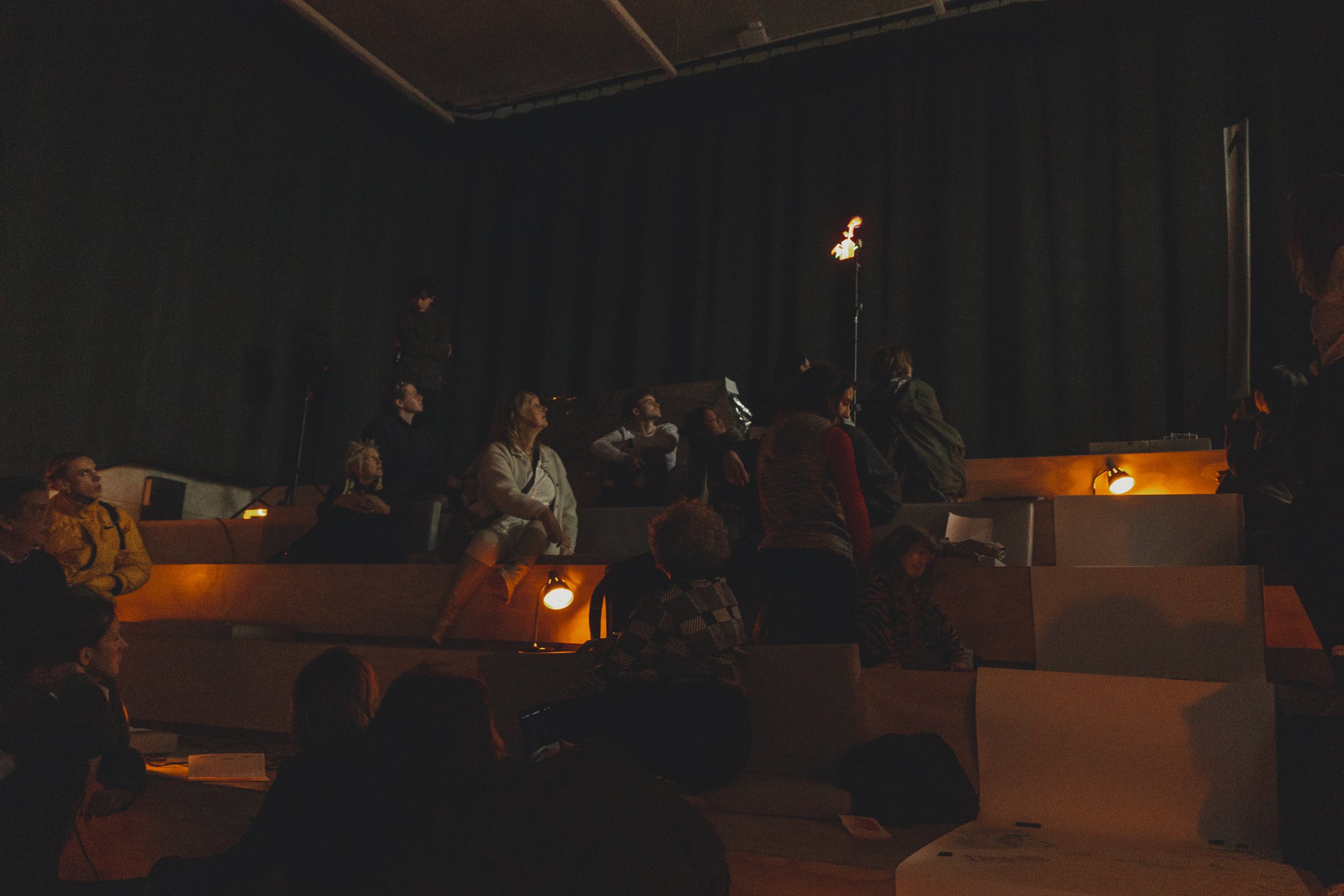Join us to prototype alternative smart city imaginaries through immersive media on May 15th-19th 2025 at the Aalto University.
The speculative cinema workshop is part of the DISC (Digital Inequality in Smart Cities) research project at Aalto University led by Dr. Johanna Ylipulli and will be guided by Amsterdam-based filmmaker and design researcher Emilia Tapprest.
Learn to ground critical imaginaries in design anthropology
Practice using cinematic tools to create immersive fiction shorts
Make an impact by participating in long-term academic research
-
The workshop sessions will take place at the Aalto University campus, Otaniemi, Espoo
Session I – Thursday May 15th, 17:00-20:00
Session II – Saturday May 17th, flexible per team between 11:00-18:00
Session III – Sunday May 18th, flexible per team between 11:00-18:00
Session IV – Monday May 19th, 17:00-20:00 -
The workshop welcomes 12 participants in the age group of 20-30 who have interest in contributing to new future imaginaries while learning more about the workshop’s themes and methods. Previous experience in film is not required, yet some proficiency with digital tools (ex. editing software) is helpful. Enrollment requires commitment to participate in all workshop sessions.
-
Emilia Tapprest is an independent filmmaker and design researcher based in Amsterdam. Alumni of the Aalto University and the Sandberg Institute, her work engages with emerging technologies and society through design research and film. She is tutor at Eindhoven Design Academy’s Geo-Design MA and is currently artist-in-residence at the Swiss Federal Technology Institute of Lausanne. https://nvisible.studio/









Context
As smart cities integrate AI-driven governance and ecological sensing, questions of digital citizenship extend beyond human actors. This workshop explores collectively how these emerging developments challenge existing notions of rights, participation and accountability. Through speculative cinematic prototyping, participants will critically engage with real-world cases to imagine alternative trajectories for equitable future cities.
The workshop is conducted as part of the Digital Inequality in Smart Cities (DISC) by Dr. Johanna Ylipulli. DISC is an interdisciplinary and transdisciplinary project funded by Research Council of Finland, spanning over 5 years from 2020 to 2025. It is executed in collaboration with significant academic and non-academic partners with the aim of building more nuanced conceptions of digital inequality and citizenship in smart cities. In addition to creating new knowledge, the project frames central design challenges and proposes solutions for them on conceptual and practical level.
Example questions we will explore include:
Who (or what) gets to be a “citizen” in a smart city?
What happens when AI systems designed for human-centric cities start responding to nonhuman rhythms and behaviors?
How is digital participation shaped by AI-driven systems? What forms of agency and exclusion emerge when governance is increasingly automated?
If a river, a forest, or a colony of bats had digital personhood, how might they influence city decision-making?
What does it mean to negotiate with an unelected AI bureaucrat when it determines access to housing, mobility, or social services?
What forms of resistance, subversion, or adaptation might emerge?
Workshop
During the workshop, participants will engage with a range of methods for encoding speculative scenarios into immersive cinematic experiences. The process will be facilitated step-by-step with a series of scenario-writing and prototyping exercises making use of cinema camera, sound design, computer visualizations, physical enactment and creative editing. Preliminary, we will work in small groups, while individual projects are also possible.
We will ground imaginaries into three existing cases: The Zoönomic Institute in Rotterdam, which proposes an example of a new legal and organizational framework in which human actors collaborate with nonhuman entities—
such as plants, animals, and ecosystems—through ecological representatives. The Canòdrom center in Barcelona which prototypes new forms of digital citizenship at the heart of the city; and AuroraAI, a short-lived digital governance initiative in Finland.
These examples enact possible futures in the present, containing anecdotal stories and telling details in the “messiness” of everyday life. What happens when similar models are adopted into new contexts? Which kind of misuses might emerge? How do “new normals” shape our affective and embodied experience in smart cities 10 years from now?
Contact
For more information about the workshop and research, please get in touch with us!
johanna.ylipulli@aalto.fi
emilia@nvisible.studio
